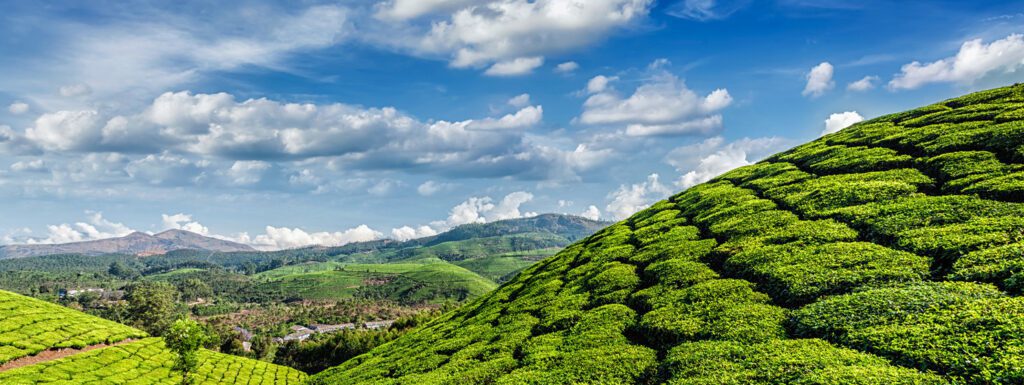India, the second tea producer in the world after China, should implement an auction system powered by blockchain and artificial intelligence (AI) to improve transparency and rationalize operations within the tea industry.
The state of northeast of ASSAM has announced its intention to collaborate with various stakeholders in the tea industry to establish the first auction platform based on the blockchain, led by India AI. This innovative system is ready to transform the tea trade by ensuring secure transactions and promoting fair pricing practices. By taking advantage of these advanced technologies, the platform should not only stimulate the effectiveness of the tea industry, but also strengthen Assam’s reputation as a world leader in the tea sector.
As the greater state producing tea in India, Assam contributes more than 50% of the country’s total tea production, making this initiative a key step to consolidate its domination in the world tea industry.
“Assam will work with stakeholders in the tea industry to introduce the first auction system based on blockchain in India to improve transparency and efficiency,” said the ASSAM 2025-2026 budget.
“This digital platform will revolutionize tea trade by ensuring secure transactions and fair prices. The initiative will strengthen Assam’s position as a world leader in the tea industry. ”
The Minister of Finance of Assam, Ajanta Neog, presented the budget for the financial year 2025-26 in the assembly of the State. The state is preparing for the provincial elections due at the beginning of 2026.
ASSAM, known for producing premium tea, is an essential contributor to India tea exports. However, problems such as price manipulation and lack of transparency have long tormented the auction system. The integration of blockchain and AI technologies is ready to revolutionize the tea industry, which stimulates economic growth for ASSAM and India.
This digital transformation is aligned with ASSAM’s broader objective to adopt advanced technologies to promote sustainable development. By adopting these innovations, ASSAM establishes a reference to follow for other states and industries. The new platform is expected to provide market access to all participants, small farmers to large areas, providing data -based information, fair prices and a secure and decentralized system to eliminate fraud. In addition to the auctions, the blockchain system will improve the transparency of the supply chain, while AI should rationalize the auction process by analyzing market trends, reducing delays and improving efficiency.
Indian tea auctions are among the largest and most influential in the world, with important centers in cities like Kolkata, Guwahati and Cochin, which are the key to the country’s tea industry. A tea auction is a platform where tea producers, sellers and buyers gather to bid and buy different types of tea. These auctions are generally organized in specialized centers and are essential to fix prices and determine the tea offer on the market. Producers have samples of their tea and potential buyers – ranging from traders to wrapping and distributors – place offers depending on the quality and demand for tea. This auction process plays a vital role in determining prices, ensuring transparent and fair transactions for buyers and sellers.
The tea, or “chai”, as it is commonly known in India, is far beyond a simple drink; It is a cornerstone of the cultural identity of the nation. The deep connection of India with tea extends over hundreds of years, and it has become the world’s second producer of this drink. The rich cultural traditions and the various landscapes of the country offer an ideal setting for tea cultivation, which makes it a vital agricultural product. Tea plays a central role in social interactions, daily routines and even religious practices, which makes it an inseparable element of Indian life.
According to data from the Tea Board of India, India produced 1284.78 million kilograms of the tea harvest in January and December 2024, a drop of 7.8% during the same period in 2023 when the production figure was 1393.66 million kilograms. The decline was due to unfavorable weather conditions, including heat waves and floods, which disrupted production during the crucial harvest period. This drop in production caused a significant increase in tea prices. The average cost of tea in 2024 reached 198.76 rupees ($ 2.32) per kilogram, marking an increase of almost 18% compared to the previous year.
However, Indian tea exports in 2024 jumped almost 10% compared to 2023, driven by the demand of water, Iraq and Russia. According to Tea Board data, India exported 254.67 million kilograms of the harvest between January and December 2024, around 10% more than the 231.69 million kilograms it exported during the same period in 2023. India mainly exports the CTC (Crush-Tear-Curl) to market tea like Egypt and the United Kingdom, while variety Orthodox is divided to Iraq, and Russia.
Assam’s other initiatives
ASSAM also provides the first anti-infrake and cyber-surveillance laboratory powered by AI.
“ASSAM police will be encouraged to set up the first IA-based Indian laboratory to combat Deepfake threats and improve cyber-surveillance. This cutting -edge installation will strengthen cybersecurity, digital criminalics and online threat detection.
The Assam government plans to modernize the collection of property income and make it more accessible. ASSAM goes to the National Generic Document Registration System (NGDR) as part of the “One Nation, One Software” initiative. In addition, the State plans to use geospatial tools for a specific land assessment and implement the blockchain in NGDRS for secure and faster transactions, according to the budgetary document.
Watch: the “disruptive” blockchain can be useful for India
https://www.youtube.com/watch?v=-dnwqsk3ym Title = “Youtube Video Player” Frameborder = “0” Allow = “Acceleromment; autoplay; clipboard-twri; Encrypted-Media; Gyroscope; Image-In-Picture; Web-Share” Fermerpolicy = “Strict-Origine-Ohen-Cross-Ogin” Allowlscreen>




